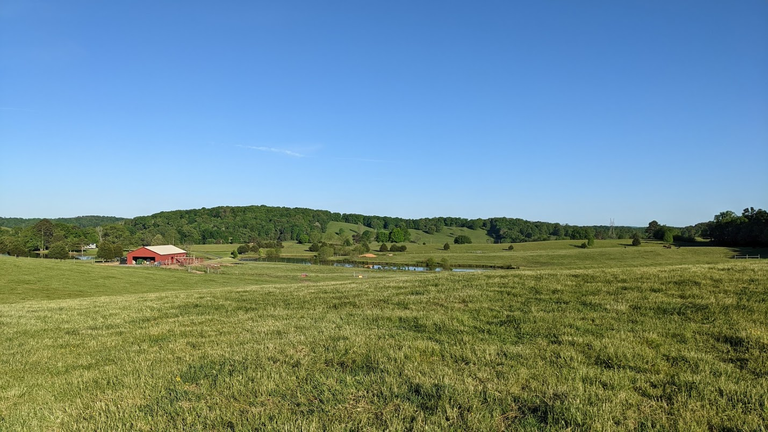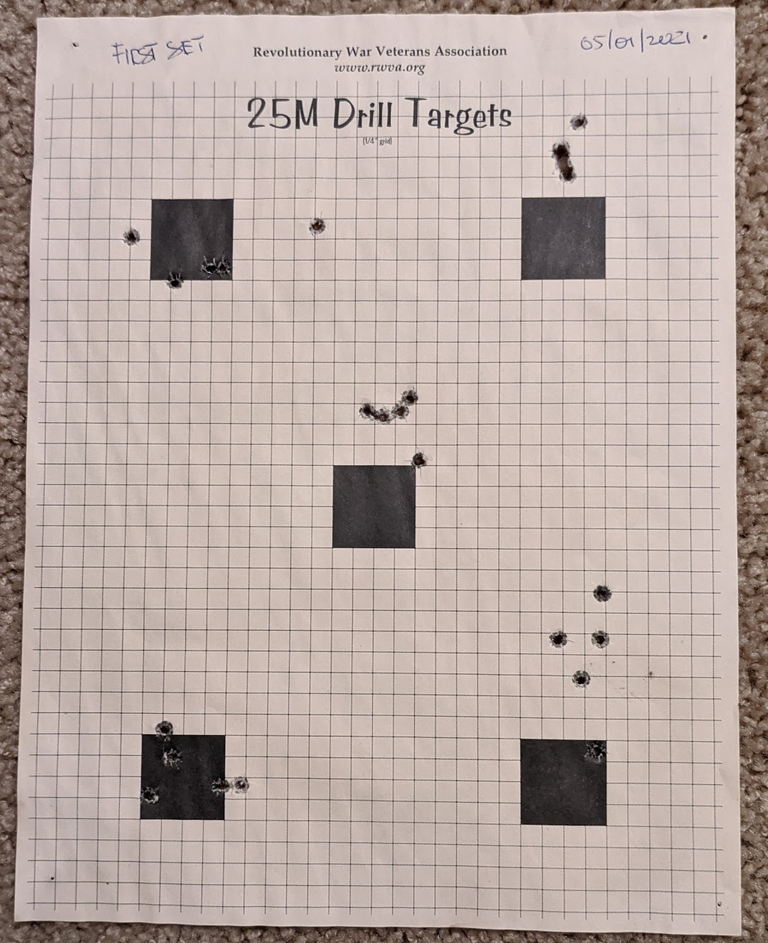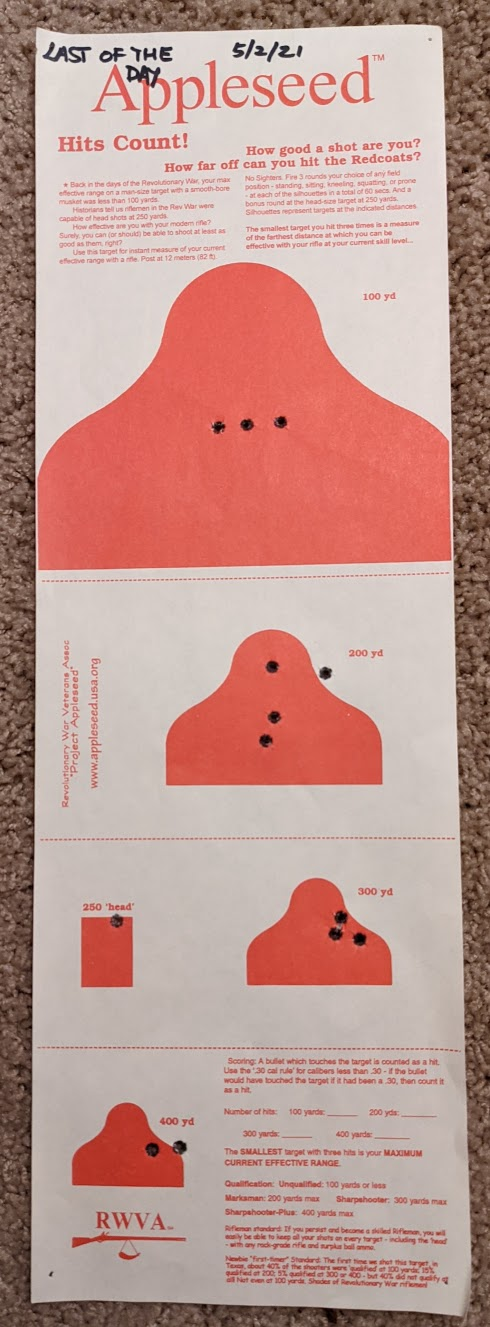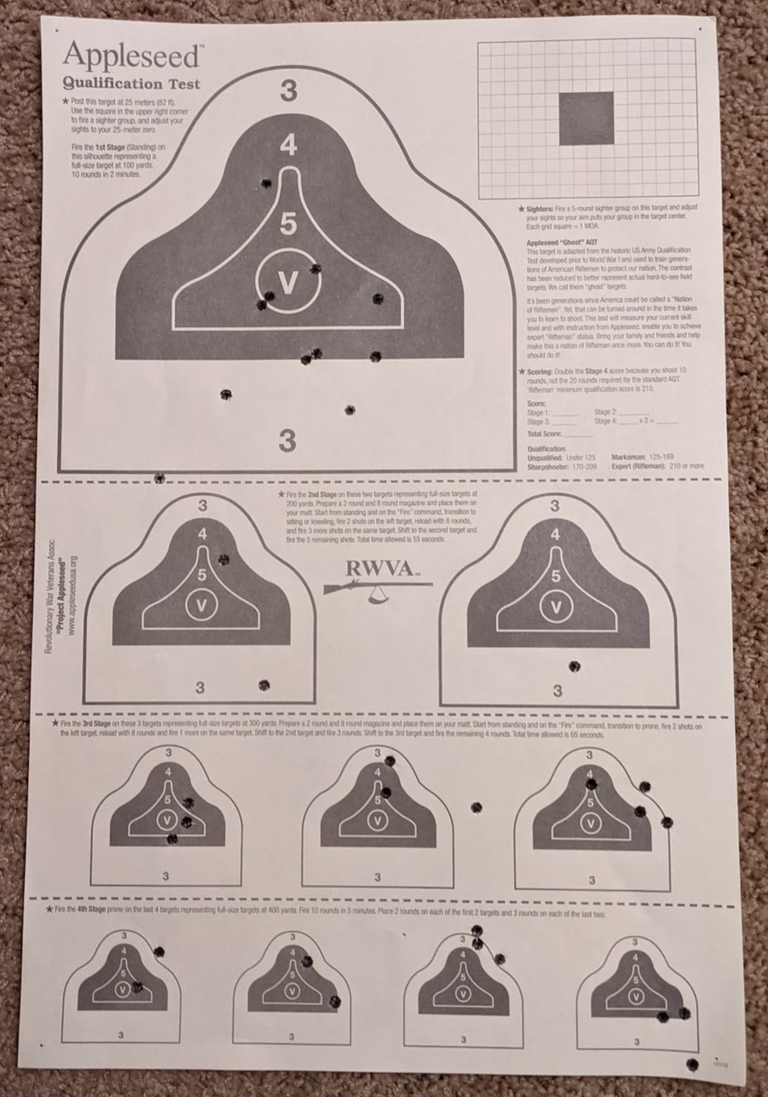Welcome & Safety Briefing
Upon arriving at the training site we were directed to the range and asked to back up our vehicles to the firing line. Although this is not directly related to the training, I have to mention that the location was pretty spectacular - some of the prettiest Tennessee countryside around.

Anyway. Back to the training. The Appleseed Project is run by volunteers who donate their time to teach rifle handling skills. For this training there were quite a few present, so that the student-to-volunteer ratio would almost allow for 1-1 instruction during this weekend. After registering and introductions all around, we moved onto the safety briefing.
This consisted of three parts:
- a refresher on the general firearm safety rules that most of us will know by heart,
- a few additional rules around how to make your rifle safe between firing exercises. One of these rules asked for an 'Empty Chamber Flag' to be inserted - one of which was provided at signup to each of us.
- what to do in case of misfires etc.
Note: You can use either iron sights or a scope, both are allowed in this course. Also, all targets were set up at 25m.
Day 1 - New Skills and Exercises
The following I am writing from memory, so I may not be getting everything in the correct order or even cover every exercise we performed. Having said that, the general pattern for the first day was instruction, followed by putting this new knowledge into practice on the range. Rinse and Repeat. At regular intervals the instructors would regale us with tales from the (start of) the revolutionary war. More specifically, events taking place on the first day - April 19th, 1775.
As I remember it, the first skill taught was the use of the sling when firing from a prone position. This skill was then used to fire some shots at a 25m Drill Target. This was repeated a few times until we shot fairly tight groups. Once that was accomplished, with help from instructors, sights were then adjusted and more shots were fired to verify we could now hit the targets. This new skill, the use of the sling, was a real eye opener for me. In the preceding week I had taken the rifle out to the range a few times, but had never been able to shoot anywhere near the groupings I was shooting now.
 | ||
 | ||
 |
Over the course of the first day, we acquired yet more skills:
- six steps to firing a shot (sight alignment/picture, breathing, etc.)
- Natural Point of Aim (where does my rifle point when my body is relaxed)
- Calculations involving how to use MOA when adjusting your sights or scope.
- shooting from standing and kneeling positions, transitioning between them, and use of the sling in each
During these exercises, we used either the 'RedCoat' target (middle) or the Qualification target (bottom). As the first day progressed, a little more pressure was applied during exercises by making them time-limited. This was to prepare us for the Qualification tests, which would make up much of the second day. One thing I should mention is that most of the exercises also included the changing of magazines , which added to the time pressure (for me anyway).
Day 2 - Putting it all into practice for the tests
The second day then started with a quick check of the sights, which on my rifle needed to be adjusted again. After a quick refresher of what we had learned on day 1, it was on to shooting more Red Coat and Qualification targets. By the way, the qualification stages have you shoot from standing, kneeling and prone positions. Qualification was for real this time: if you could shoot better than the passing score you would be handed your Rifleman badge immediately.
This day really wore me out for some reason. In every qualification test, something seemed to go wrong. I either lost count of my shots on each target, fumbled with the bolt release (I hate that tiny switch on the Ruger 10/22), dropped magazines, or didn't get all my shots in before time ran out. The pressure created by the conflicting goals of making a good shot (applying all the newfound skills) and completing the exercise within the allotted time put a lot of stress into the proceedings.
In the end though, it was all very rewarding. Having learned many new skills, I now feel much more confident with my rifle and look forward to improving my skills at the range.
I would definitely recommend this program to anyone interested in acquiring or improving their rifleman skills.
Congratulations @m-abel! You have completed the following achievement on the Hive blockchain and have been rewarded with new badge(s) :
Your next target is to reach 300 upvotes.
You can view your badges on your board and compare yourself to others in the Ranking
If you no longer want to receive notifications, reply to this comment with the word
STOPSupport the HiveBuzz project. Vote for our proposal!
Appleseed will definitely test your skills, as well as your knowledge of your equipment! I've been an instructor for a few years now, and honestly, knowing your equipment, and learning the positions, it's made me a better shooter. Knowing why the colonists took up arms against their own country has made me a better person.
I like that last target. Looks like it would be fun to shoot at different distances even if not doing an Appleseed event. Happen to have a link to download a jpg or pdf version of it?
I can't find that exact target (which would be poster-sized), but there is a thread on the Appleseed forum where similar targets are shared: https://appleseedinfo.org/smf/index.php?topic=9833.0
Some of those look interesting. Tks!
I have heard nothing but good about this program. Marksmanship is an essential skill, and ought to be encouraged. I also like the subversive undercurrent inherent in any reference to the Revolutionary War.